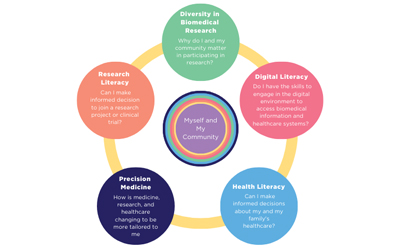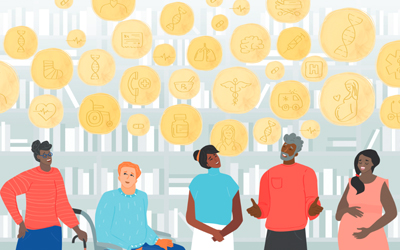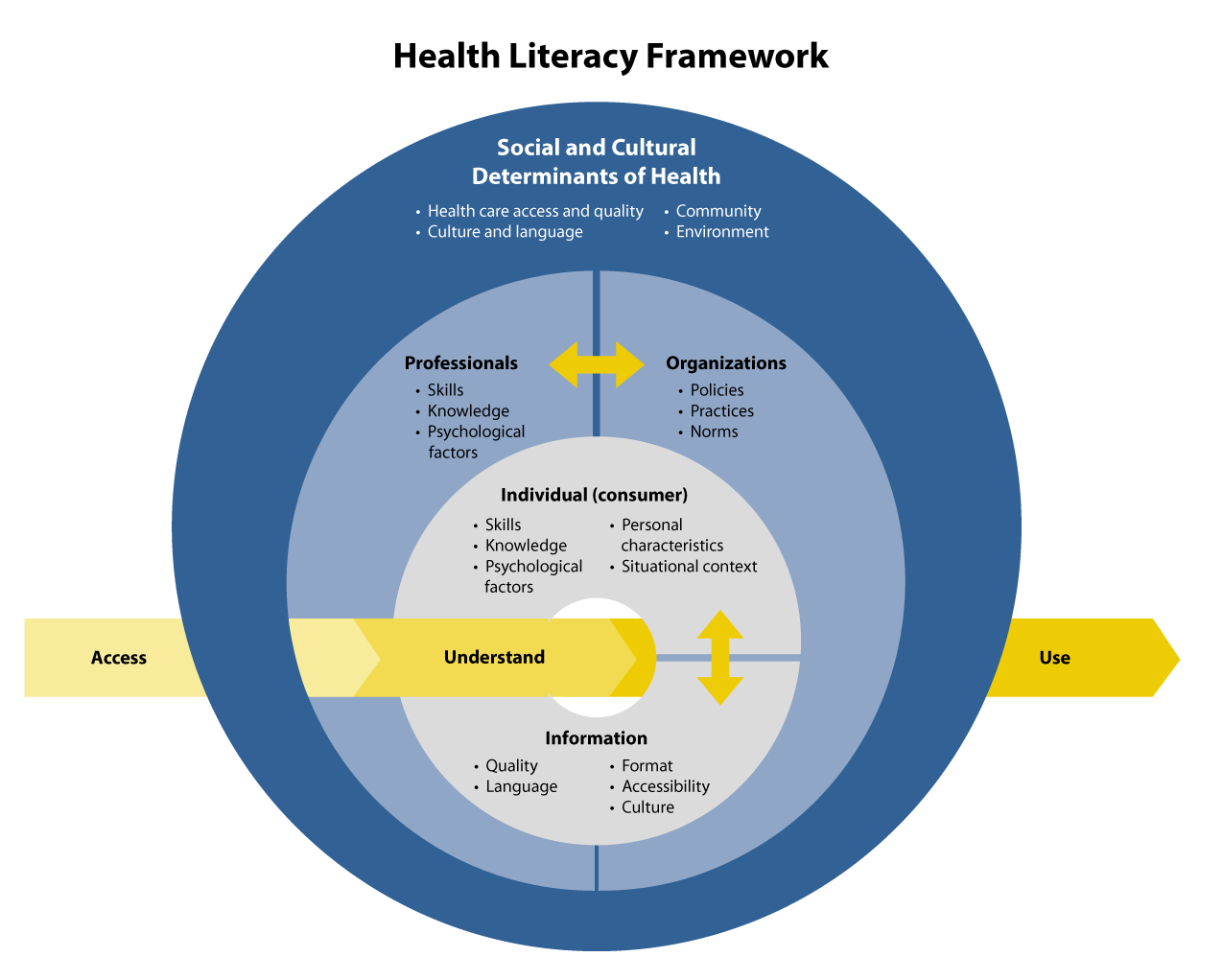Who are we & what do we do?
The NNLM All of Us Program Center (NAPC) is part of the Network of the National Library of Medicine (NNLM), an outreach program funded by the National Library of Medicine (NLM).
The NAPC supports the NIH All of Us Research Program (All of Us) to engage those interested in becoming an All of Us participant and to provide value for those who are currently participating in the program.
Why are we doing this?
Medical research hasn’t always been inclusive of everyone living in the United States and the NNLM recognizes the importance of diverse representation in biomedical research.
Public libraries are trusted places in many communities and can can help spread the message of the importance of participating in biomedical research in community and individual health.
Public libraries can actively support people interested in engaging in biomedical research by providing access to technology and offer programs that help strengthen their communities:
- health literacy so individuals can use quality health information to make informed decisions about their health
- digital literacy so individuals can sign up for and participate in biomedical research and find quality health information online
- community science literacy so individuals can participate in biomedical research as community researchers as well as participants.

How do we do this?
-

Public Library Partnerships
Make the case for your libraryWe work with public libraries to understand the value of supporting diversity in biomedical research, help their communities participate in All of Us, and support the health information needs of their communities.
-

Resources Library
Explore Resources LibraryWe offer something for every public library, including training, funding, connections, and amazing resources.
-

NNLM Health Literacy Framework
Explore NNLM Health Literacy FrameworkThe NNLM Health Literacy Framework is a reference tool that we use to understand the key factors that influence individual and organizational ability to access, understand and use health information.
How can I get involved?
I’m interested but want to know more:
Start by joining the Network of the National Library of Medicine! It's free with no obligation.
Then take our free consumer health information classes at your convenience where ever you have internet access. Finally, contact us to talk about how we can help you get your community excited about participating in biomedical research!
I’m interested but don’t have a lot of time, staff, or resources:
Check out our learning activities and program kits in the Resource Library.
Looking for something but don’t see it? Drop us a line and tell us about it!
I’m in and ready to get started!
Let’s talk! Email us at lib-nnlmallofus@uiowa.edu and one of our Engagement Specialists will get back to you to design your very own customized engagement experience.
Why public libraries?
- Public libraries are community hubs and know their local communities. They are also a “third place” (after home and work) where people spend time. They provide space for community activities, technology for access to digital information, and support lifelong learning.
- Public libraries are ideal for providing access to trusted health information for library users of all ages, which can aid in patrons’ decision-making about their health and that of their loved ones.
- Partnering with public libraries provides opportunities to improve community health outcomes through health outreach, programming and partnerships.
- Working with public libraries also provides the opportunity to connect them with other NNLM members in the areas, creating or enhancing local networks for disseminating health information and addressing health needs of their communities.
- Public libraries already offer services, programs, and resources that can be used to support participation in biomedical research, including All of Us?
- loanable technology, such as laptops and mobile hotspots
- wireless internet and public access computers
- meeting spaces
- health information materials
- community trust and established relationships with local organizations
- bookmobiles and other methods of doing outreach in the community
- health reference services and programs
